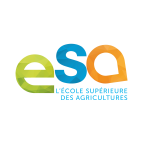- All
- [Open Science Policies]
- Auvergne-Rhône-Alpes
- Bourgogne-Franche-Comté
- Brittany
- Centre-Val de Loire
- Corsica
- DROM-COM
- Grand Est
- Hauts-de-France
- Île-de-France
- Normandy
- Nouvelle-Aquitaine
- Occitania
- Pays de la Loire
- Provence-Alpes-Côte D'Azur
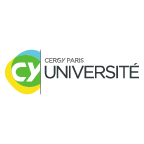
CY Cergy Paris Université
The university’s goal is to become one of the world’s leading universities and to gain an international reputation for research. Its strategy is based on the qualitative and quantitative recruitment of doctoral students, post-doctoral fellows and research lecturers, and we strive to develop strategic alliances and support innovation. Its ambition is to help address the major societal challenges of the 21st century.
CY Cergy Paris Université is renowned for its dynamism and its firm commitment to developing research excellence. It is rooted in its territory and strongly oriented towards the international market. Its goal is to help address the challenges of the 21st century and it is committed to driving societal transition. It is one of the laureate universities of the Investment for the Future Programme. The CY Initiative I-Site is a joint initiative between CY Cergy Paris Université and the ESSEC Business School, and is one of the leading higher education and research sites in the world. Its strong points are a better understanding of the global challenges of a changing world, due primarily to scientific and technological developments, coupled with a radically international approach, at the heart of a top-ranking campus for quality of life. CY Initiative systematically bases its implementation on two drivers: excellence in research and economic development.
A successful participant in the European programme of European universities with its EUTOPIA 2050 project and network, CY Cergy Paris Université is also expanding internationally through its strategic alliances. The EUTOPIA alliance brings together the universities of Warwick (United Kingdom), VUB (Belgium), Pompeu Fabra (Spain), Gothenburg (Sweden) and Ljubljana (Slovenia) around common research programmes and joint PhD programmes, as well as support for lecturer-researchers’ mobility.
CY Cergy Paris Université is also the sponsor or partner of two equipments of excellence and six laboratories of excellence, and is involved in the VEDECOM Institute for Energy Transition.
CY Cergy Paris Université carries out its research and development tasks in 25 research laboratories, including 10 CNRS joint research units, three research federations and 7 open labs.CY Cergy Paris Université hosts close to 1,200 researchers, including around 550 doctoral students and 500 tenured research lecturers.
The university participates in the transfer of technology and knowledge to society. It promotes a firm policy for the dissemination and advancement of its research. The university is supported by the Technology Transfer Acceleration Company(SATT) ERGANEO, of which it is a founding member and shareholder. Erganeo is a strategic partner to accelerate and facilitate the transfer of CY knowledge and technology, CY Alliance, to companies of all sizes.
Read more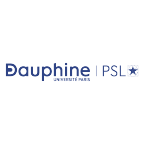
Dauphine-PSL
Its increasingly attractive range of course offerings, the international reputation of its scientific teams, and the recognition of its development model obtained with Equis accreditation all combine to make Dauphine a creative and responsible university with a determined international outlook.
Read more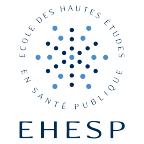
EHESP
The EHESP School of Public Health was set up to provide a school of higher public health studies in France. The organization implemented serves the strategic guidelines of the institution presented in its objective and performance contract for the period 2014 to 2018. A new strategic project is currently under development. It will result in a new objectives and performance contract 2019-2023 signed by the two ministries supervising the EHESP School of Public Health: the Ministry for Solidarity and Health and the Ministry of Higher Education, Research and Innovation.
EHESP has four missions:
- to provide initial training for senior public sector managers and inspectors in the health and welfare services
- to provide higher education in public health, in close partnership with other institutions
- to contribute to research in public health
- to promote international relations, in particular through exchanges with similar educational institutions.
90 lecturers, grouped into 4 departments, provide training for senior management in health and welfare services, in a national and international context.
- 12 training programs for healthcare professionals
- Masters, post-masters and doctoral degrees
- Institution-specific Diplomas
EHESP also offers 10 certificates and more than 250 “short” training programs that are updated each year in various public health fields, discover all the professional development programs.
EHESP also offers preparatory courses for a number of competitive examinations for positions as civil servants in ministerial and health facilities, both in class setting and through distance learning, as well as training courses tailored to the needs of each facility
The relevance and quality of teaching are an integral part of applied research. Research is carried out by 4 education and research departments including 12 research chairs, 1 environmental health research laboratory (LERES), 9 research organizations in partnership including 3 joint labs and a research team.
Read more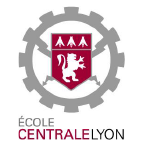
Centrale Lyon
The École Centrale de Lyon (or Centrale Lyon) is a public scientific, cultural and professional establishment (EPSCP) and an engineering school with an international reputation for teaching and research. Its mission is to train men and women capable of designing and implementing complex and innovative activities at the highest level.
Research at Centrale Lyon is structured around 6 laboratories, all Joint Research Units with the CNRS. They are dedicated to tribology, life sciences and nanotechnologies, acoustics, mechanics and aeronautics.
HAL portal
Open Science Policy
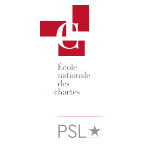
École nationale des chartes
The Ecole nationale des chartes ranks among among the grands établissements of higher education. At the cutting edge of historical research, for which it has continuously and deeply renewed its methods since its foundation in 1821, the School has constantly supported the development of historical methods and the modernisation of the conservation professions, up to and including the current application of digital humanities in these sectors.
Read more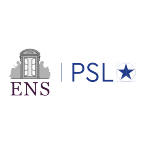
École Normale Supérieure
At the same time a French grande école and a university, the Ecole normale supérieure provides in Paris, at the heart of the Quartier latin, excellent training through research, leading to various teaching and research professions, and contributes to train through research the senior executives of public administrations as well as of French and European companies. The ENS also defines and applies scientific and technological research policies, from a multidisciplinary and international perspective.
Intellectual freedom, multidisciplinarity in humanities and sciences, individual attention to students, bountiful campus life, gathering students and professors from all disciplines, form the heart of the specificities of the Ecole normale supérieure. Since more than 2 centuries, the ENS prepares its students to the most various openings and the highest responsibilities, while being fully invested in the intellectual, scientific and cultural debates of its time – in particular through the multiplicity of the normaliens’ engagement.
Read more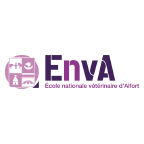
Alfort National Veterinary School (EnVA)
The Alfort National Veterinary School (EnvA) has more than 250 years of history. Established since 1766 in Maisons-Alfort, it has been transformed over the centuries to train future veterinarians, carry out ambitious research actions and treat animals. EnvA is one of 12 public higher education establishments in agriculture, veterinary and forestry under the supervision of the Ministry of Agriculture and Food .
Read more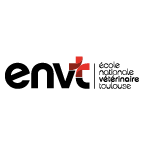
National veterinary school Toulouse
The National Veterinary School of Toulouse (ENVT) is one of the four French National Veterinary Schools and one of 12 public higher education establishments in the fields of agronomy, veterinary science and forestry under the supervision of the Ministry of Agriculture and Food.
Research activities at the ENVT are carried out in 14 research/departmental or technological units, either within the school itself or in joint research units (UMR) in partnership with INRAE, INSERM, UT3 Paul Sabatier, CNRS and CIRAD.
Read more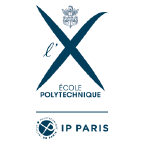
École Polytechnique
As a higher education establishment, École Polytechnique, also known as l’X, naturally seeks to share the most up-to-date knowledge to benefit its students, selected based on the criteria of excellence for which it is renowned.
However, École Polytechnique also creates knowledge, for its professors are both teachers and researchers. It hosts around twenty laboratories, which are closely connected to French national research institutions and committed to prestigious international collaboration. The aim of these laboratories is to achieve results in the form of intellectual property rights and publications in leading journals in both fundamental and applied research.
École Polytechnique’s credo is to be multidisciplinary both in its teaching and research. Structured around ten scientific disciplines, including humanities and social sciences, it focuses its research on eight themes that involve collaboration between the laboratories. Such a model stems from the observation that fruitful innovations accepted by society are born from the confrontation and cooperation of disciplines, including philosophy.
Read more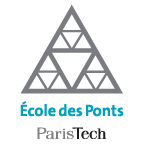
École nationale des ponts et chaussées
École des Ponts ParisTech, created in 1747 under the name École Royale des Ponts et Chaussées, is a higher education establishment that trains engineers to a high level of scientific, technical and general competency. Apart from civil engineering and spatial planning, historically the source of its prestige, the School develops high-quality programs and research associated with the energy transition.
Read more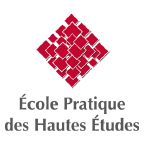
École Pratique des Hautes Études
The École Pratique des Hautes Études – PSL (EPHE – PSL), established in the Sorbonne in 1868, is acknowledged as one of France’s ‘grands établissements’ where research is undertaken in Life and Earth Sciences, Historical and Philological Sciences, and Religious Sciences.
Located in the heart of Paris, PSL inspires dialog among and between all areas of knowledge, innovation, and creativity. Ranked among the world’s top 50 universities, it draws directly from research to train researchers, artists, engineers, entrepreneurs, and managers who are aware of their social responsibility, both individual and collective.
The EPHE focuses on unique fields of knowledge. Lectures and other learning strategies, offered by over 260 faculty, provide an exceptional opportunity for immediate immersion into research as practiced in a myriad of fields including languages and religions of Pre-Islamic Central Asia, the major monotheistic faiths, Chinese archaeology, Hebrew palaeography, Greek dialectology and digital humanities in the sphere of Social Sciences and Humanities; coral reef biodiversity, neurosciences and cognitive science, cellular environment and regulation in the Life and Earth Sciences sector… as well as transdisciplinary issues that bridge these key areas of knowledge.
Remaining true to its initial mission, the EPHE continues to develop research skills through immersion in research practice and tailors its programs to today’s ever-changing global scientific landscape: its faculty members and its doctoral students are part of an intricate international network; many of its teams have contracts with the CNRS and other renowned organizations; it is part of PSL (Paris Sciences et Lettres) University where it works hand-in-hand with other prestigious establishments; it is one of the founders of and is actively involved in the Campus Condorcet project – the Cité des Humanités et Sciences Sociales (Social Sciences and Humanities Campus), which is currently under construction in the Paris suburb of Aubervilliers.
Ever mindful of the societal challenges of the scientific issues that it studies, the EPHE comprises four institutes which provide courses and which also have a primary role as an observatory: the European Institute of Religious Sciences, the Pacific Coral Reef Institute and the Transdisciplinary Institute for the Study of Aging, ILARA, the Institute for Linguistic Heritage and Diversity.
Read more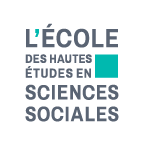
EHESS
The École des Hautes Études en Sciences Sociales (EHESS) produces and disseminates knowledge about human societies by organising a permanent interdisciplinary dialogue between history, sociology, anthropology, economics, philosophy, geography, literary studies, psychology and cognitive sciences.
Its 3,000 students pursue careers in research, teaching, journalism, public action, communication, publishing, etc.
Read more
EMLyon Business School
emlyon business school was founded in 1872 by the Lyon Chamber of Commerce and Industry. It is a private higher-education establishment recognized by the French State. It is one of the oldest business schools in Europe. emlyon is among the 1% of global business schools to be accredited by the three international accreditation systems: AACSB, EQUIS and AMBA. As such, it merits its status as a global-ranking school of business and management.
The School hosts 8,900 students representing 121 nationalities in undergraduate and postgraduate programs, along with nearly 6,900 participants in executive education programs. The School counts seven campuses around the world: Lyon, Saint-Étienne, Paris, Casablanca, Shanghai, Bhubaneswar and Mumbai. It draws on a network of 190 international academic partners and leads a community of 35,700 alumni in 130 different countries.
emlyon’s distinctive academic signature early makers molds learning into a lifelong endeavor to have an impact on the world and offers a real alternative in its environment. It sees learning as not only a transfer of academic knowledge but also a “course of learning experiences” that equips students to forge a constant link between thought and action: “doing to learn, learning to do”.
Through these collective and individual learning experiences, emlyon has set out to train responsible managers capable of taking up the challenges of today and tomorrow. This general-interest calling lies at the heart of the school’s identity and will be written into its articles of association in July 2021 when it transitions to the status of a benefit corporation.
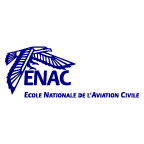
ENAC
ENAC is internationally recognized as the leading aeronautics and aviation university in Europe, providing a broad range of training, studies and research activities.
Our institution provides a comprehensive range of 28 higher education programs ranging from Bachelor to Master of Science, Aviation Advanced Master, Master of Business and Administration as well as Ph.D.s in the domains of aeronautics and aviation.
Since its creation in 1949, ENAC has provided professional training to civil aviation personnel such as Air Traffic Controllers, ATSEPs and technicians for Civil Aviation Authorities (CAA) or Air Navigation Service Providers from all over the world (e.g. China, Switzerland, EuroControl, Indonesia, Philippines, Brazil, Africa, Georgia, Mongolia, Saudi Arabia).
ENAC alumni work in aeronautical and aviation companies, in fields such as manufacturing (Airbus, ATR, Embraer, Safran, P&W, GE, Rockwell Collins, Thales, Indra), and airports, airlines, civil aviation authorities as well as air navigation providers across the globe.
ENAC is also known internationally for its training of ATPL and MPL pilots for airlines including Air France, Easyjet, Transavia, Sichuan Airline, China Eastern, Shanghai Airline, Lao Airline, Oman Air and Royal Air Maroc.
Innovative ENAC research laboratories work in cooperation with the best universities worldwide to provide a safer, more efficient and more sustainable air transport system.
Read more
ENS de Lyon
The École Normale Supérieure de Lyon is an elite French public institution that trains professors, researchers, senior civil servants as well as business and political leaders. Students choose their courses and split their time between training and research in sciences and humanities. Built on the tradition of the ENS de Fontenay-Saint-Cloud, founded in 1880, the ENS de Lyon also focuses on educational research. It is a symbol of French Republican meritocracy and it remains committed today to disseminating knowledge to the widest audience and to promoting equal opportunity.
The ENS de Lyon is part of the Université de Lyon and supports quality research that has earned it a Fields medal (Cedric Villani, 2010) and many CNRS medals. It encourages interdisciplinary studies to foster a better understanding of complex contemporary issues.
HAL portal
Open science policy

ENSSIB
ENSSIB is a public institution with a scientific, cultural and professional nature, in the form of a Grand établissement, created by decree n°92-25 on January 9 1992. ENSSIB is both a Grande école, aiming to train public libraries executives and librarians recruited through public service competitive exam, and a specialised university institution, issuing a national master’s degree and two ENSSIB diploma.
HAL portal
Open Science Policy
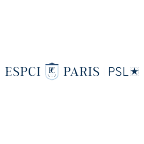
ESPCI Paris
ESPCI Paris – PSL is a major institution of higher education (a French “Grande École d’ingénieurs”), an internationally renowned research center, and a fertile ground of innovation for industry.
Founded by the City of Paris in 1882, for over a century the School has attracted leading scientific innovators like Nobel Prize laureates Pierre and Marie Curie, Paul Langevin, Frédéric Joliot-Curie, Pierre-Gilles de Gennes, and Georges Charpak, who continue to contribute to the institution’s international reputation.
The School’s culture of excellence remains as vibrant as ever. Fully 60% of graduates go on to complete a thesis and earn their PhD. The School’s teaching faculty and researchers are building tomorrow’s knowledge base, publishing an article a day in top international scientific journals ; inventing the industry of the future, filing for a patent every single week.
A model of excellence and an illustration of the “French exception”, ESPCI Paris is a component school of PSL University and a founding member of ParisTech, the Paris Institute of Science and Technology.
Read more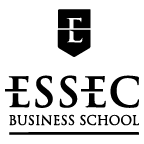
ESSEC Business School
A pioneer of business-related learning since 1907, ESSEC’s mission is to respond to the challenges of the future. In an interconnected, technological, and uncertain world, where the tasks are increasingly complex, ESSEC offers a unique pedagogical approach. This approach is founded on the creation and dissemination of cutting-edge knowledge, a blend of academic learning and practical experience, and a multicultural openness and dialogue.
Read more
